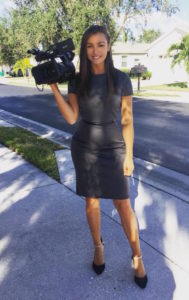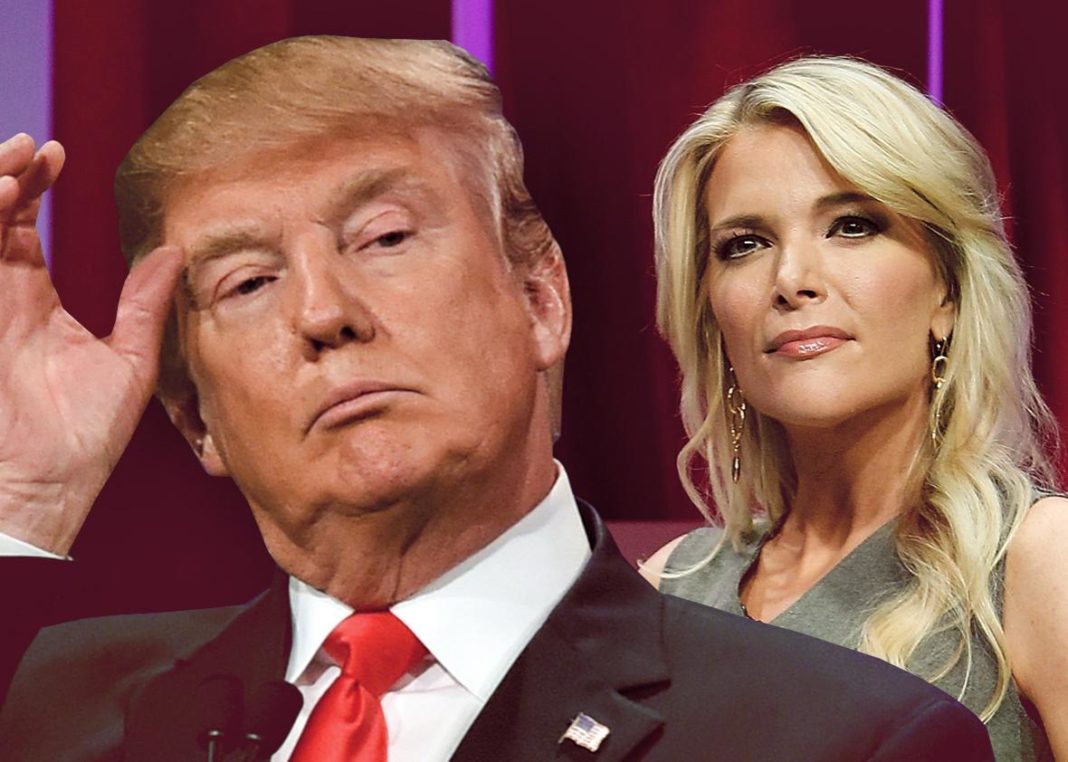“She has blood coming out of her eyes. Or blood coming out of her wherever.”
Despite her status as a controversial media personality, women around the world came to Megyn Kelly’s defense when President Trump made vulgar statements about the former Fox News journalist and debate moderator. This wasn’t the first Trump made inappropriate remarks about women or journalists, of course, and it certainly won’t be the last (albeit limited platform options to do so). While Trump undoubtedly was once the most powerful person to carry out such misogynistic rhetoric, he wasn’t the only one. In fact, many argue he enabled a sleeping populace of men eager to conduct hostile sexism with impunity.
As a former television journalist covering politics in multiple states, I routinely experienced discrimination and harmful comments from politicians and voters alike. What many people don’t know about television news is that it is becoming increasingly common (even in large markets) for journalists to do all of their own camera work, making the job more dangerous than ever.
I started my career in political reporting in Waterloo, Iowa, a mid-sized industrial city known best for agricultural manufacturing. Though Iowa is the 30th most populous state in America, it is the first stop on every presidential candidate’s tour every election. Shortly after accepting a multimedia journalist position at the NBC affiliate in Waterloo in August of 2014, I was thrust into the circus that is the Iowa caucus.
 On any given day, I would dart across small rural towns for Marco Rubio meet-and-greets and Hillary Clinton rallies, schlepping nearly 50 pounds of camera and computer equipment along the way. I’ll never forget the first time a campaign manager gruffly asked if I was an intern or a “helper” when I requested an interview with a candidate. I remember discussing these instances with my male counterparts and noting the differences in how we were treated on the job. I was not alone in this experience.
On any given day, I would dart across small rural towns for Marco Rubio meet-and-greets and Hillary Clinton rallies, schlepping nearly 50 pounds of camera and computer equipment along the way. I’ll never forget the first time a campaign manager gruffly asked if I was an intern or a “helper” when I requested an interview with a candidate. I remember discussing these instances with my male counterparts and noting the differences in how we were treated on the job. I was not alone in this experience.
One reporter who requested anonymity shared her story of covering politics in the most recent election. “I had to work twice as hard to prove I know what I’m talking about. I had to work harder to get the same interviews as my male colleagues, and a lot of people didn’t seem to trust I had the expertise and knowledge to be covering politics, though I spent months on the beat.”
Ask any female journalist how the “reporter experience” has changed over the past seven years, and most will tell you they are worse for sure. As disdain has grown for journalists since the 2016 election cycle, so has the poor treatment of them in the field.
While small market television stations aim to provide 24/7 news coverage (more local content = more local ad revenue), journalists walk a fine line between existing as everyday citizens and local celebrities. This quandary is most often apparent in mundane situations such as shopping for groceries or pumping gas, when viewers confront off-the-clock journalists trying to live their normal lives. This accessibility is not just a nuisance, it also leaves reporters vulnerable to said viewers who believe they’re owed that access.
“There were times when men would approach me on the street and would attempt a compliment which quickly turned sexual or just inappropriate in general,” said one former reporter who also requested to remain anonymous. “One man even tried to wrap his arm around me while I was interviewing him.”
While I “retired” from the traditional news business in 2018, I am inspired by female journalists who continue to overcome challenges, knock down barriers, and live their truths fearlessly.
For readers who are not familiar with the powerhouse political journalist team at NPR, correspondents Ayesha Rascoe and Asma Khalid are stellar examples to follow. NBC News White House correspondent Kristen Welker is a seasoned political journalist frequently regarded for her dynamic interview style.
Speculation over future presidential elections, specifically regarding the Republican Party, began long before the new Biden administration took office. What this will mean for female journalists is yet to be determined. What is certain, however, is that more female journalists from diverse backgrounds are needed to hold politicians accountable. Injecting a female perspective into political discourse can change who politicians and viewers accept as “experts” in the field. The onus to hire more female (and BIPOC) political journalists falls on station management. The onus to keep female (and BIPOC) political journalists safe while out in the field also falls on station management. It is that simple, and the importance of these two requirements cannot be overstated.
For readers interested in further reading about the status of women in the U.S. media, check out this in-depth report headed by the Women’s Media Center.


